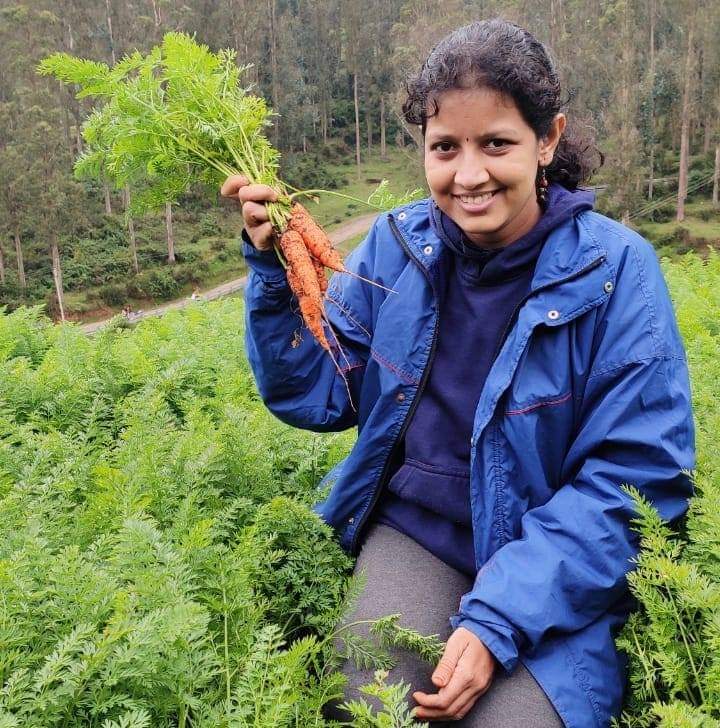Archana Stalin – myHarvest Farms – on Climate Education – Cli5 @ Clidemy
Cli5 is an effort to get valuable feedback from a wide range of stakeholders about their perceptions about climate education and their suggestions for improving it. It comprises a maximum of five questions, hence the name Cli5.
In this post, Archana Stalin, Founder & Growth Champion at myHarvest Farms provides her insights to the questions on climate education.
Clidemy – The Climate Academy thanks Archana for her insights. (See Cli5 insights from others)

Why do you think most ordinary people know so little about climate change and related
domains?
People are beginning to understand the history of climate change and how it relates to them. When people complain that it’s too hot outside or that it isn’t raining when it should, in my opinion, is when the topic of climate change first becomes relevant. Otherwise, I don’t think people have a solid grasp of its implications yet. Therefore, climate change is something that occasionally comes up when people feel that the weather isn’t quite in their favour.
I believe there is a significant lack of awareness. People are unaware of how much their daily activities contribute to climate change. Simply put, people don’t talk about it much at home or at work.
What types of topics within climate change or sustainability would you like to get educated
on, or learn about?
I’m more curious to learn about agriculture as I work in that domain, therefore I’d like to know how climate change has affected my farmers through the years in terms of the soil and other resources, more like climate detection, I’m interested in that.
Additionally, there have been many improvements made to the way we conduct business, but I do not yet have the necessary metrics to measure the sustainability component of those changes. Therefore, the second item on the list should be something like creating a sustainability index or monitoring our performance there.
How can we make schools teach more climate education to children – both primary &
secondary school children?
I believe that this should come up frequently in conversation so that children can approach climate education in a much more enjoyable manner as they perceive it to be an issue for adults. The issue, in my opinion, is unlearning. I believe children’s initial perception of the world makes a huge difference. For instance, while I was working with students at a school it had a kitchen garden, which exposed them to a lot more ideas about nature. I believe that learning about nature should focus more on application and lifestyle modifications that people can make.
What role do you think governments should do about climate education?
Governments can undoubtedly make this change on a large scale, with the help of policies. I believe governments can start this transformation immediately because people constantly pay attention to a greater power centre. Therefore, when the government does insist on switching to electric vehicles or government insists on planting trees, having green cover in the city, reducing usage of plastic, and all of this, only when the government truly enforces some of these does it actually have a larger reaction. Therefore, I believe that the government’s policies and implementation are crucial.
Solid waste management will, in my opinion, play a larger role in this, and I think segregation should be implemented by both the government and the populace. The issue arises frequently because people believe that everything is merely on paper and don’t take action. People may therefore watch it happening as they interact. Therefore, the government’s responsibility is to introduce the policy and ensure that it is carried out.
Are you aware of climate related jobs? If yes, what careers are you aware of
No, I only hear about all of this from a number of climate tech startups. However, I’m not really certain of any jobs as such. Otherwise, I only know a small number of startups that are engaged in climate change innovation. I am unsure if there are any suitable occupations.

